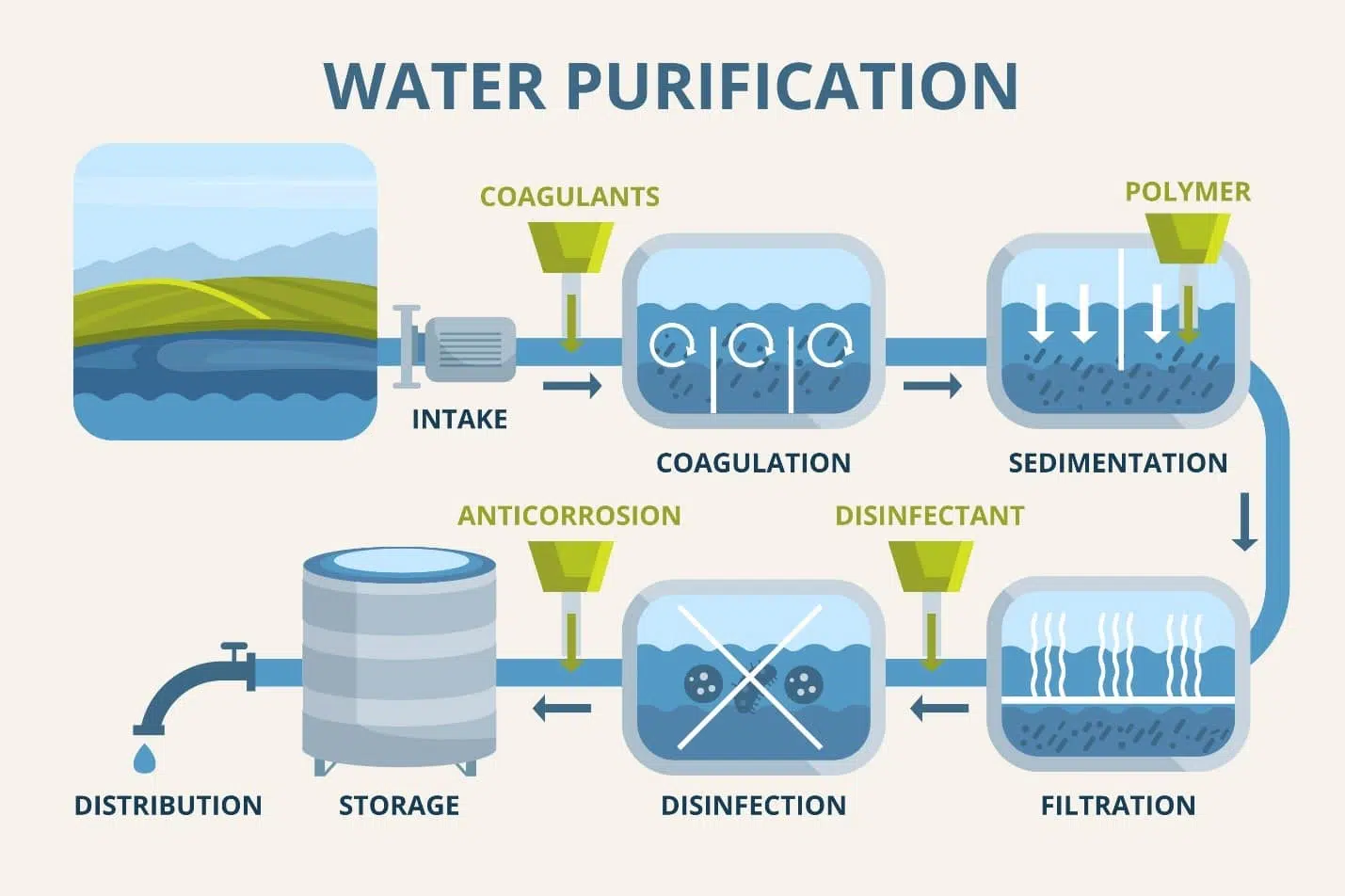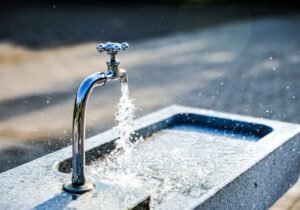Clean, safe water is no longer a luxury—it’s a necessity. This Spring 2025, we’re making it easier than ever to upgrade your home’s water quality. With the purchase of a complete whole house water/air/laundry system, you’ll receive a FREE Reverse Osmosis water filtration system for your kitchen—a $750 value!
But what exactly is reverse osmosis, and why is it so beneficial? Let’s break it down.
What Is Osmosis?
Osmosis is a natural process where water moves through a semi-permeable membrane from a less concentrated solution to a more concentrated one, balancing the concentration on both sides.
What Is Reverse Osmosis?
Reverse Osmosis (RO) flips the script. In this process, water is forced through a semi-permeable membrane, filtering out impurities and leaving behind clean, purified water. It’s one of the most effective filtration methods available for homes today.

What Does Reverse Osmosis Remove?
A reverse osmosis water filter can eliminate:
- Lead
- Removes PFOS forever chemicals
- Chlorine
- Fluoride
- Pesticides
- Nitrates
- Arsenic
- Bacteria
- Heavy metals
- Microplastics
- Sediment
This makes it a powerful solution for anyone concerned about their tap water’s safety.
How Does a Reverse Osmosis Water Filtration System Work?
A reverse osmosis water filtration system typically includes:
- Pre-filters – Remove sediment and chlorine.
- RO membrane – Filters out contaminants at a microscopic level.
- Post-filters – Polish the water before it reaches your faucet.
- Storage tank – Holds the clean water.
- Faucet – Delivers fresh, clean water to your sink.
Advanced models, like tankless reverse osmosis systems, offer faster flow rates and take up less space.
Is Reverse Osmosis Water Good for You?
Absolutely. RO systems provide clean, better-tasting water while removing contaminants that may be harmful over time. It’s especially beneficial for infants, pregnant women, and those with compromised immune systems.
Advantages of Reverse Osmosis Water
- Improves taste and odor
- Reduces harmful contaminants
- Protects appliances from hard water scale
- Lowers bottled water use
Health Benefits
Drinking reverse osmosis water supports:
- Better digestion
- Healthier skin
- Reduced toxin intake
- Improved hydration
Environmental Benefits
Say goodbye to single-use plastics. By installing a reverse osmosis water filter system, you significantly reduce plastic bottle waste, helping our environment one drop at a time.
Cost Benefits
Though the reverse osmosis home system has an initial cost, it pays off by:
- Reducing bottled water purchases
- Extending the life of kitchen appliances
- Lowering plumbing maintenance costs
Spring 2025 Special Offer
Get a FREE Reverse Osmosis water filter for your kitchen (a $750 value) when you purchase a whole house water/air/laundry system. This limited-time offer won’t last long—act now!
Contact Us or Schedule Your Free Water Testing Today!
Want to know what’s in your tap water? Book a free water test and see how a reverse osmosis filter system can make a difference.
📞 Call Now: (440) 296-3222
📆 Schedule a Free Water Test
Learn more about water quality and reverse osmosis from the CDC and EPA.
10 FAQs about Reverse Osmosis Water Filtration
-
What is reverse osmosis water filtration?
Reverse osmosis is a water purification process that removes contaminants by forcing water through a semi-permeable membrane. -
Is reverse osmosis water safe to drink?
Yes, reverse osmosis water is very safe and clean. It removes harmful contaminants and is often purer than bottled water. -
What does a reverse osmosis system remove?
It removes lead, chlorine, fluoride, arsenic, nitrates, bacteria, viruses, microplastics, and other impurities. -
How often should I change the filters in a reverse osmosis system?
Typically every 6 to 12 months for pre- and post-filters, and every 2 to 3 years for the RO membrane, depending on usage and water quality. -
Does reverse osmosis remove beneficial minerals?
Yes, it removes both harmful and some beneficial minerals, but most people get essential minerals from food rather than water. -
Is a reverse osmosis filter system good for well water?
Yes, it’s excellent for well water, especially when paired with a pre-treatment system to handle sediment or iron. -
What’s the difference between under sink reverse osmosis and whole house reverse osmosis?
Under sink RO systems filter water at one faucet, while whole house RO systems purify water for the entire home. -
How much water does a reverse osmosis system waste?
Traditional RO systems may waste 3-4 gallons per 1 gallon of filtered water, but newer tankless reverse osmosis systems are more efficient. -
Can I install a reverse osmosis filter myself?
Yes, many under sink systems are DIY-friendly, though professional installation is recommended for whole house systems. -
Why choose reverse osmosis over other water filtration methods?
Reverse osmosis is one of the most thorough filtration methods, removing a wider range of contaminants than most standard filters.





